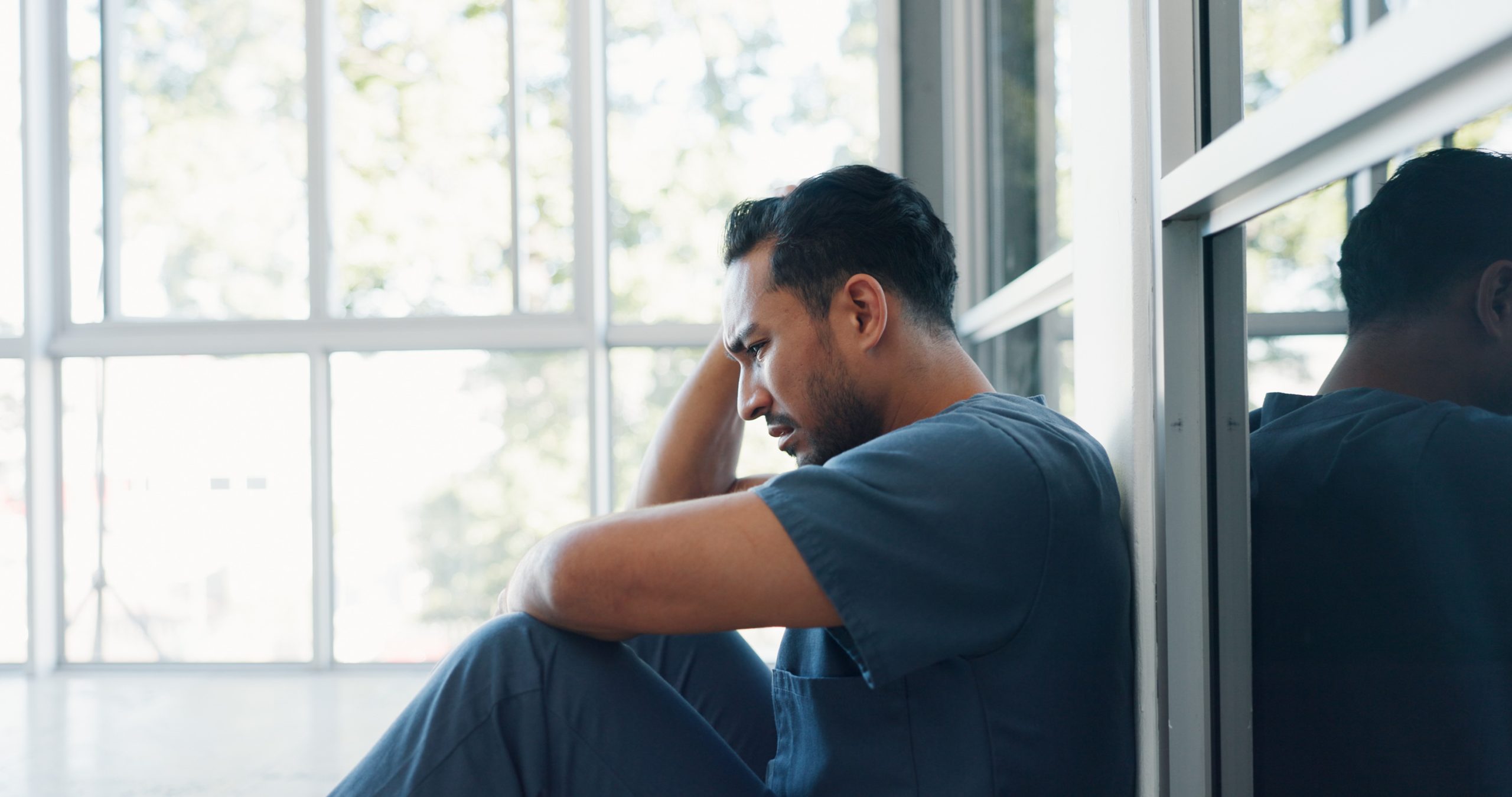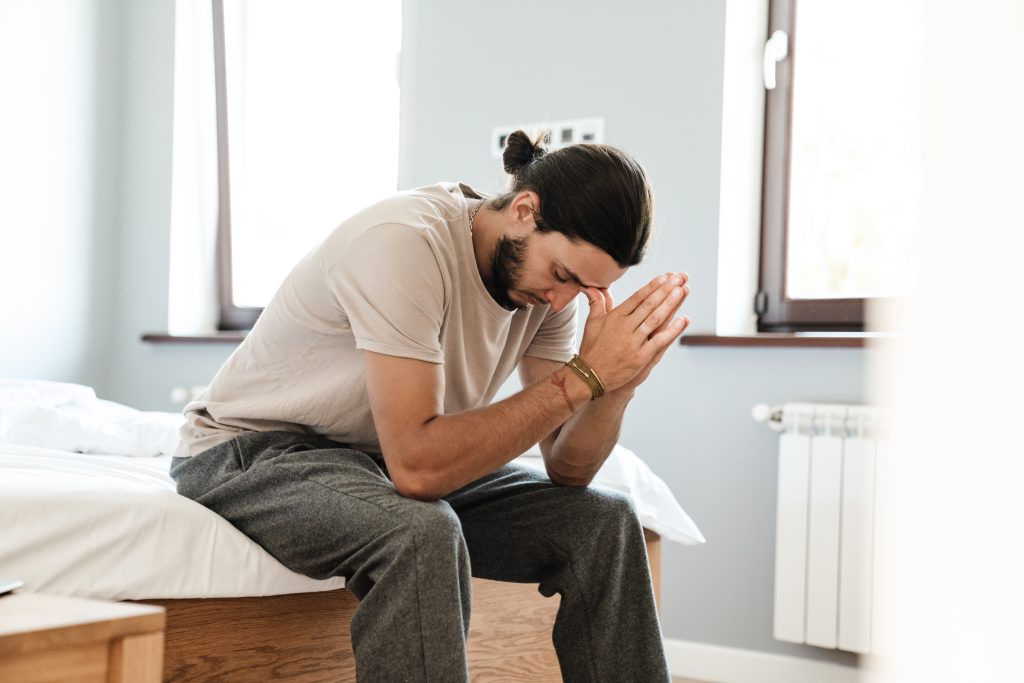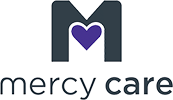
Anxiety Treatment

Effective Anxiety Treatment in Arizona
Find Relief & Take Back Control
Around 17% of Arizonans experienced symptoms of an anxiety disorder in 2024. That’s over 1.2 million people managing what can be a debilitating condition.
For some, their anxiety symptoms are mild. They can go about their day with a little discomfort and more worry than the average person. In one study, though, 57% of people with an anxiety disorder said their condition significantly impacted their life.
No matter the severity of your symptoms, help is available, and you deserve the relief it can bring. Lifeline Behavioral Health offers anxiety treatment for everyone, no matter their age, history, or experiences. We want to talk with you, learn your story, and empower you to live a healthy, peaceful life.

What We Treat
Anxiety Disorders
An anxiety disorder is a mental health condition characterized by fear and worry. These feelings are usually disproportionate to the situation inspiring them and are persistent. Often, anxiety will surface without any real rhyme or reason for people with anxiety disorders. Anxiety disorders can greatly interfere with someone’s quality of life.
Some people experience anxiety so intense that they’re unable to leave the house due to their fear. This can be fear of judgment, fear of something bad happening, and more. Others avoid places and situations that make them anxious.
This can cause people to miss out on the joy life has to offer. Thankfully, anxiety is fully treatable, and care with Lifeline Behavioral Health provides the tools you need to live without fear. Let us help you find the peace that comes with addressing your anxiety.

More Than Just Worrying
Symptoms of Anxiety Disorders
Symptoms vary depending on each anxiety disorder, but some common symptoms include:
- Feeling on edge
- Trouble concentrating
- Uncontrollable, obsessive thoughts
- Irritability
- Unexplained pains
- Extreme fear and worry
- Problems falling and/or staying asleep
- Feelings of impending doom
- Significant self-consciousness
- Avoiding specific situations or places out of fear

How We Treat
What to Expect From Anxiety Treatment at Lifeline Behavioral Health
Counseling is at the heart of Lifeline Behavioral Health. We believe everyone can benefit from therapy in both individual and group settings, and we address the challenges contributing to each person’s anxiety. Whether it’s short-term stress or something you’ve carried for years, we’re here to talk it through and help.
Anxiety is a common condition that affects all ages. At Lifeline, we offer treatment tailored to children, preteens, and adolescents, recognizing that their needs differ adults.
We also provide therapy groups for adults and teens, including CBT, DBT, women’s wellness, men’s behavior, substance use recovery, parenting, veterans and first responders, and health anxiety. Adolescent groups focus on DBT, empowerment, and overall mental health.

How the Different Kinds of Outpatient Treatment Help With Anxiety
Our Intensive Outpatient Program (IOP) supports adults and adolescents who need more than weekly counseling. The program runs eight weeks with three group therapies and one individual session each week, or a shorter four-week track. Aftercare is always provided, and if anxiety continues, extended care is encouraged. Healing takes time, and more support is simply part of the journey.
For deeper support, our Partial Hospitalization Program (PHP) provides full-day therapy tailored to your needs. You’ll return home each evening or choose Lifeline’s supportive housing for a dedicated healing environment. PHP with housing is ideal for those who want added supervision and daily access to compassionate staff, offering structure, safety, and hope for lasting recovery.
.

Our Anxiety Treatment Options That Address Your Unique Needs
We know anxiety can sometimes feel so overwhelming that even leaving the house is hard. That’s why we bring care to you through our telehealth options, giving you the chance to work with our expert team from the comfort of home.
We’re also here for every concern, including anxiety tied to sexuality, gender identity, or trauma. Our private, compassionate environment allows each person to explore how these struggles affect their mental health. We give special attention to the challenges faced by veterans and first responders, including PTSD, and remain committed to building a welcoming community that empowers healing.
A Lifeline to the Life You Deserve
Taking the first step toward healing is powerful, and our team is here to guide and support each client every step of the way.
When a Feeling Becomes a Condition
Understanding the Different Types of Anxiety Disorders
Several conditions include symptoms of anxiety, but not all of them are classified as anxiety disorders by the American Psychiatric Association. If anxiety is the symptom that interferes with your life the most, you might have one of these anxiety disorders:
Generalized Anxiety Disorder (GAD)
A flexible treatment option designed for individuals seeking support while maintaining daily responsibilities. Outpatient care focuses on providing therapy and guidance to promote mental wellness and recovery.
Panic Disorder
This condition is characterized by recurrent panic attacks – periods of intense fear and feeling out of control – often without warning or trigger. Some people with panic disorder will end up avoiding situations and places they associate with panic attacks.
Social Anxiety Disorder
A comprehensive treatment option delivering intensive care for those requiring a structured and supportive environment to address complex mental health and recovery needs.
Phobias
Someone can be diagnosed with a specific phobia based on intense fear or anxiety about something very specific, such as flying or spiders.
Agoraphobia
This is, essentially, an intense fear of being unable to leave a situation when they feel anxious. People with agoraphobia typically fear public transportation, crowds, wide open and/or small enclosed spaces, and/or leaving home altogether.
Seperation Anxiety Disorder
While typically associated with children, this condition is possible in all ages and consists of an intense fear of being apart from a loved one. It usually involves anxiety that something bad will happen to the person while they are away.
Selective Mutism
This condition is most common in children but is possible in adolescents and adults, too. It consists of an inability to speak due to anxiety in certain situations despite being perfectly capable of talking in other circumstances.
How Common Are Anxiety Disorders? How Are They Diagnosed?
Anxiety disorders are the most common mental health condition in the world – even more common than depression. They impact around 30% of adults at some point in their lives. Thankfully, anxiety disorders are completely treatable, and people with them can fully recover and live normal lives.
Anxiety disorders must be diagnosed by a mental health professional, such as a psychiatrist or psychologist. They’ll use criteria from the Diagnostic and Statistical Manual of Mental Disorders, Fifth Edition (DSM-5) as a guide as they ask you about your symptoms and experiences. Each anxiety disorder has its own set of required symptoms to meet the DSM-5’s definition of the condition. If you meet the DSM-5 definition of an anxiety disorder, you’ll be diagnosed with it.
Client Successes

Anxiety Attacks
A Misunderstood Concept
You’ve probably heard the term “anxiety attack” used by people with and without anxiety, but there’s no clinical definition for it. Because the term is subjective, two people might mean very different things when they say it.
In many cases, what’s described as an “anxiety attack” is actually a panic attack, which does have a clinical definition. You don’t need to have an anxiety disorder to experience one, but if panic attacks happen often, it’s important to seek professional help.
A panic attack brings sudden, overwhelming fear and a sense of impending doom. Physical symptoms often include shortness of breath, chest pain, choking sensations, sweating, nausea, and a racing heart. Many people even describe it as feeling like they’re dying, because the fear and physical intensity are so severe.
No Insurance? No Problem.
Not everyone has insurance, and that shouldn’t stand in the way of getting help. We offer cash pay options for all services, making care more accessible and straightforward. Many clients prefer cash pay for its flexibility, especially for lower-cost treatments. Reach out to explore your options and get started today.
Get Help for Your Anxiety Disorder in Arizona Today
At Lifeline Behavioral Health, we don’t shy away from anything. We want to hear about all of your concerns, no matter how serious or “insignificant” you might think they are. Nothing that weighs on you is insignificant. If it’s something you’re stressed or worried about, our counselors want to hear what you have to say.
We know taking the first step toward getting help is scary, especially if you experience anxiety, but pushing past that fear and seeking anxiety treatment will be well worth it. We hope you’ll contact us. You have all the power you need to take control of your anxiety already. Let Lifeline Behavioral Health equip you with the tools and strategies you need to conquer it for good.
Lifeline Behavioral Health has been in the business of providing compassionate, evidence-based mental healthcare to Arizonans for 20 years. Between our multiple locations and telehealth options, we do everything we can to make care accessible to anyone in need of treatment. Is that you or your loved one?
Insurance Coverage
Here at Lifeline Behavioral Health, we understand that paying for care is a number one concern. We accept many types of insurance plans. Don’t see your carrier on the list? Not to worry, just give us a call and we can verify your insurance plan. Our team can also work with you on paying for care outside of insurance or utilizing out-of-network benefits.

















"*" indicates required fields
Frequently Asked Questions About Anxiety
What are the most effective treatments for anxiety disorders?
Anxiety disorders are commonly treated with psychotherapy, medication, or a combination of both. Cognitive Behavioral Therapy (CBT) is particularly effective, focusing on changing thought patterns to improve emotional regulation. Medications such as selective serotonin reuptake inhibitors (SSRIs) are also frequently prescribed.
How can lifestyle changes impact anxiety management?
Incorporating regular physical activity, practicing mindfulness and relaxation techniques, maintaining a balanced diet, ensuring adequate sleep, and reducing caffeine and alcohol intake can significantly alleviate anxiety symptoms.
Are there any natural remedies or alternative treatments for anxiety?
Some individuals find relief through practices like yoga, meditation, acupuncture, and the use of certain herbal supplements. However, it’s essential to consult with a healthcare provider before starting any alternative treatments to ensure safety and efficacy.
How does Cognitive Behavioral Therapy (CBT) help in treating anxiety?
CBT assists individuals in identifying and challenging negative thought patterns and behaviors that contribute to anxiety. By restructuring these thoughts, individuals can develop healthier coping mechanisms and reduce anxiety symptoms.
What role does medication play in managing anxiety disorders?
Medications, including SSRIs, serotonin-norepinephrine reuptake inhibitors (SNRIs), and benzodiazepines, can help manage anxiety symptoms by balancing brain chemistry. The choice of medication depends on the individual’s specific symptoms and overall health profile.
Can anxiety disorders be cured, or are they a lifelong condition?
While anxiety disorders can be persistent, many individuals experience significant improvement or complete remission with appropriate treatment, which may include therapy, medication, and lifestyle changes. Early intervention often leads to better outcomes.
How can technology assist in managing anxiety?
Digital tools, such as mental health apps and online therapy platforms, offer support by providing coping strategies, monitoring mood changes, and delivering interventions like CBT. These tools can be accessible resources, especially when traditional therapy options are limited.
When should someone seek professional help for anxiety?
If anxiety symptoms are persistent, overwhelming, or interfere with daily activities, it’s crucial to consult a healthcare professional. Early diagnosis and treatment can prevent the condition from worsening and improve the quality of life.

